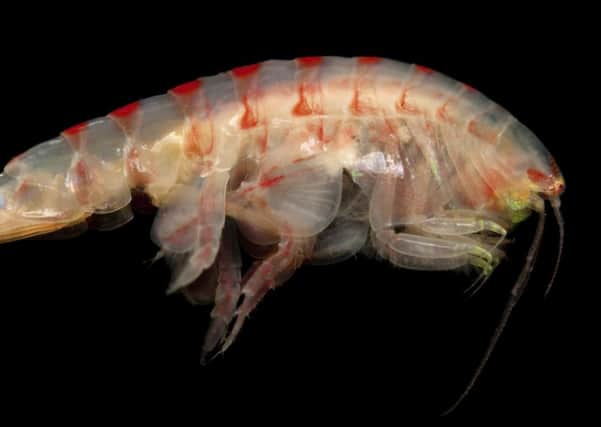Shrimp turns the tide in eco-battle of the sexes


Previous studies have shown female hormones and chemicals in human sewage, agricultural run-off and industrial effluent are causing sex changes in wildlife.
Now new research has revealed that male shellfish affected by oestrogenic pollutants can “lock down” their masculinity to avoid being completely feminised.
Advertisement
Hide AdAdvertisement
Hide AdMarine biologists at the University of Portsmouth discovered that crustaceans which have been partially transformed into females retain a core of maleness, a trait that may have developed after evolutionary battles with parasites.
“We’ve known for some time that fish change sex if they’re subjected to even small amounts of oestrogen in the water, but until now we didn’t know what was happening to crustaceans,” said Dr Alex Ford.
“What we found is that once a crustacean has decided to be male, it can lock down its maleness.”
As part of their studies the researchers mapped the entire genetic code for a shrimp-like amphipod that plays an important role in the food chain for fish and seabirds.
Samples collected at a number of sites, including parts of the Firth of Forth, found a greater number of intersex specimens in areas where pollution levels were highest.
By comparing male, female and intersex specimens, they found the creatures from contaminated waters also showed an increased rate of infestation by a naturally occurring sex-changing parasite.
The parasite feminises male shrimps in order to survive, passing itself on through the offspring.
But analysis showed the amphipods were able to resist complete gender transformation, which might otherwise have resulted in extinction of the species.
Advertisement
Hide AdAdvertisement
Hide AdCo-author Dr Stephen Short, said: “We don’t know why crustaceans, but not vertebrates, have this ability to hold on to their maleness. But we know crustaceans have been engaged in long evolutionary battles with feminising parasites that turn males into females in order to transmit to the next generation via the eggs of their hosts.”
The findings could have implications for the aquaculture industry. Experts are already exploring the idea of breeding single-sex shellfish in species where one gender is larger, as a way of maximising the yield.